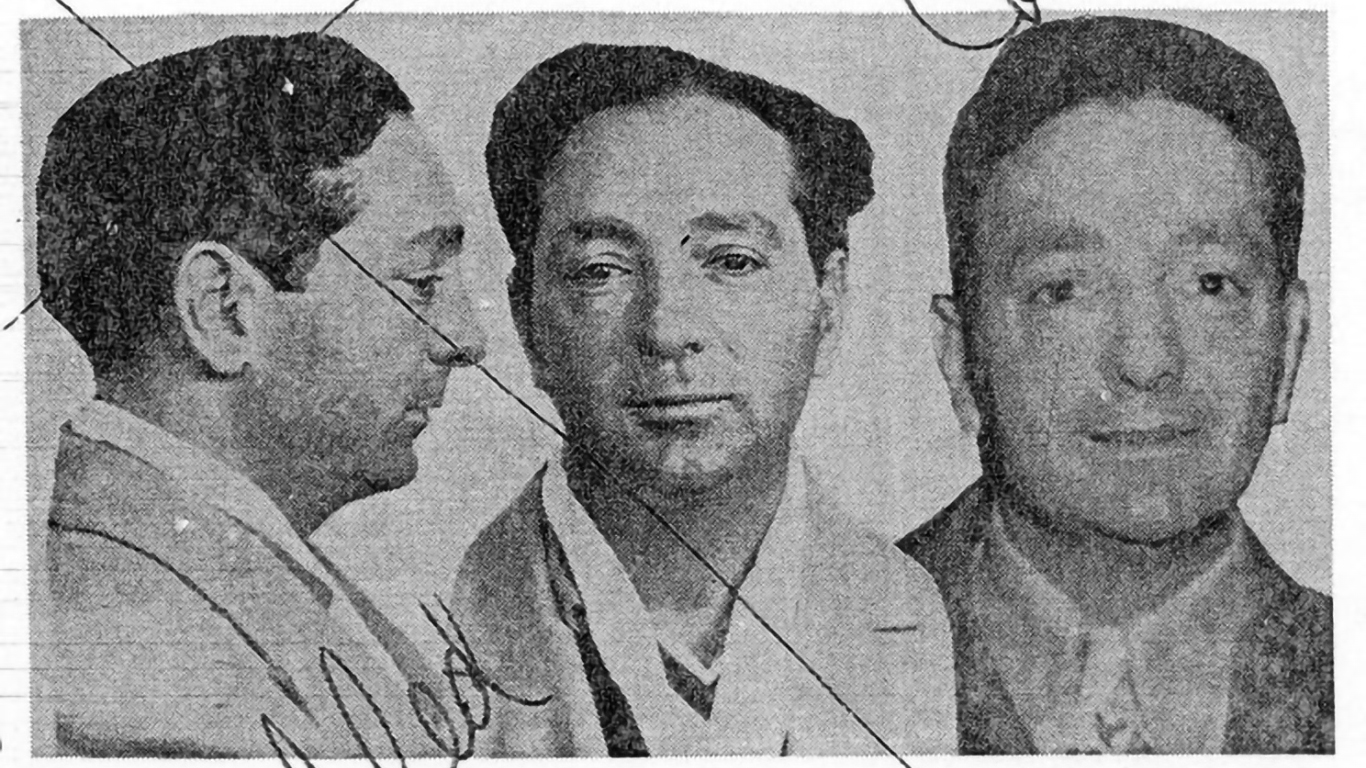
The FBI’s Most Wanted List, started in 1950, is dreaded by criminals as it enlists public help to find wanted fugitives. This roundup of 20 most wanted from the 1950s shows those named often get captured quickly.
The iconic list was created by FBI director Hoover to track down dangerous criminals, especially prison escapees. While mostly men are listed, some women have been added over the years too. Here’s a look at the most brutal female criminals in history.)
To identify 20 most wanted criminals of the 1950s, 24/7 Tempo reviewed information from “Ten Most Wanted History Pictures,” a report published by the FBI identifying over 500 current and former criminals who have appeared on the list, along with the circumstances of their arrests.
Since starting, 492 of 529 listed have been caught, many thanks to citizens. Some from the first 1950 class were arrested before being listed, while others evaded capture. (These are the cities where law enforcement makes the most arrests.)
Whether thieves, robbers, murderers or more, these were the worst criminals. The list made clear that in most cases, you can run but can’t hide from the law.
Click here to see the 20 most wanted criminals in the 1950s
Omar August Pinson
After initially serving time for burglary and armed robbery, Pinson was released from prison and promptly shot and killed an Oregon police officer in 1947. Sentenced to life in prison this time, he escaped in 1949, evaded capture after a shootout the following year, was finally caught shortly after spending five months on the Most Wanted List. He was paroled in 1959.
[in-text-ad]
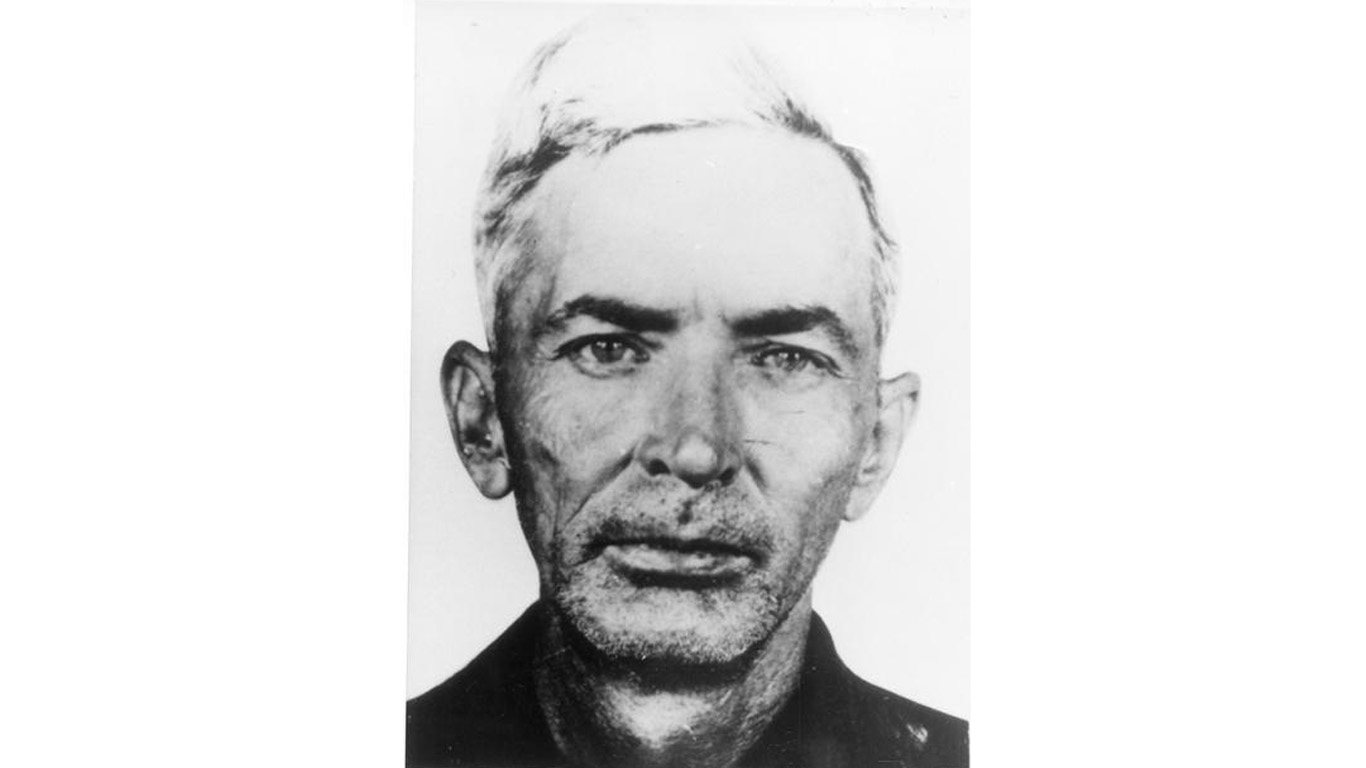
Glen Roy Wright
A member of the Karpis-Barker Gang in the 1930s, Glen Roy Wright was sentenced to life in prison at Oklahoma State Penitentiary for armed robbery in 1934 after being wounded in two separate gun battles with police. He escaped from prison in 1948 but was recaptured after nine months on the Most Wanted List and died in prison in 1954.
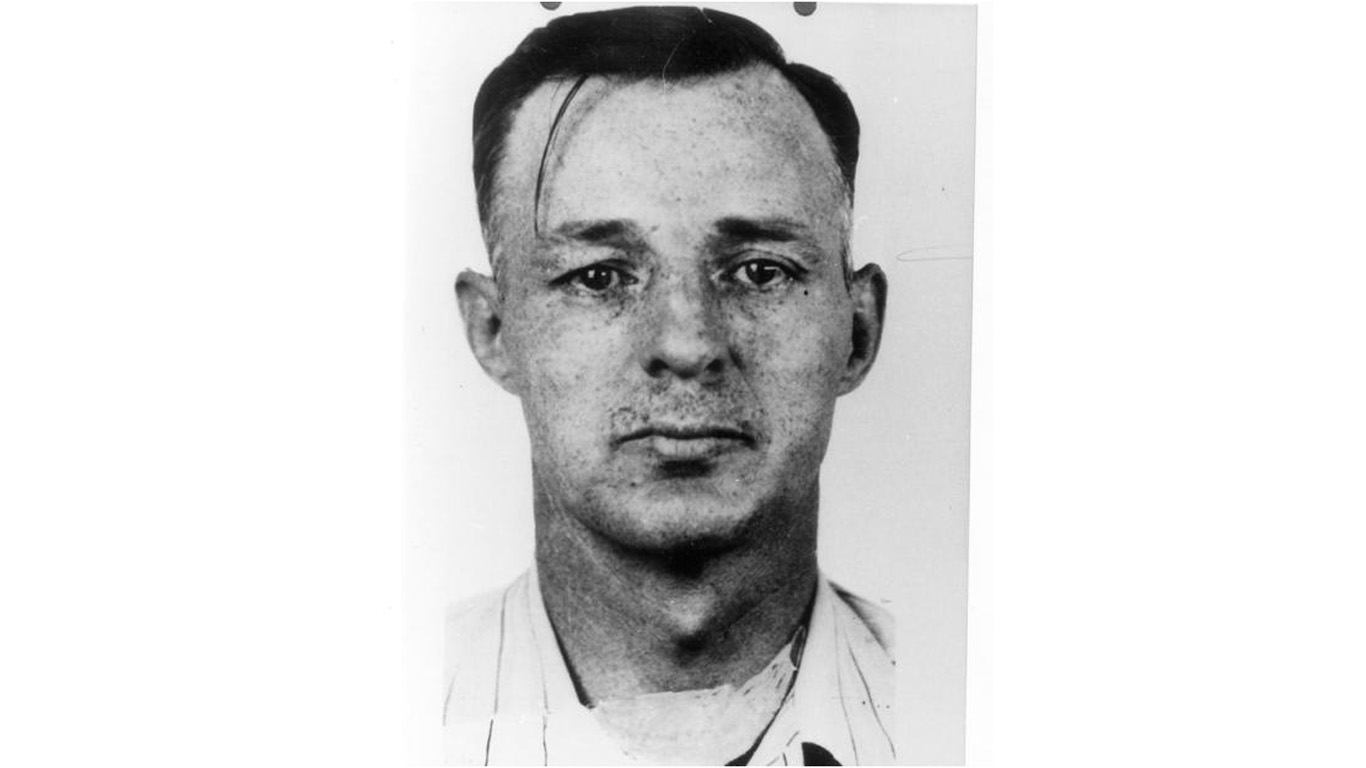
Lee Emory Downs
Skilled at safecracking and holdups, Lee Emory Downs robbed a San Jose, California, telephone company office in 1948, and two years later he was arrested in a Florida trailer park with dynamite and other weapons after a month on the Most Wanted List. After his parole in 1968, he was sent back to prison after attempting to rob the Colombian consulate in San Francisco.
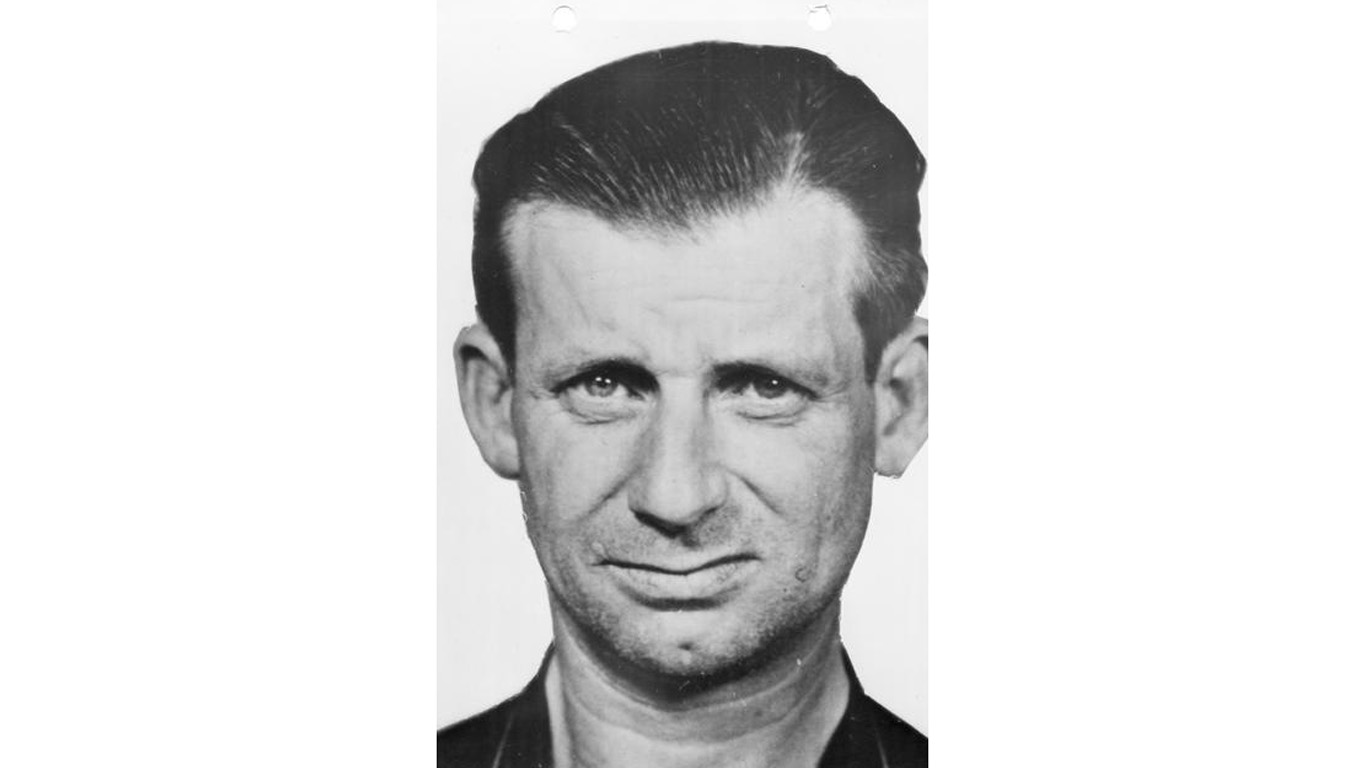
Thomas Kling
Thomas Kling, a serial bank robber, spent two years on the FBI’s Ten Most Wanted List before being arrested in New York City in 1952.
[in-text-ad-2]
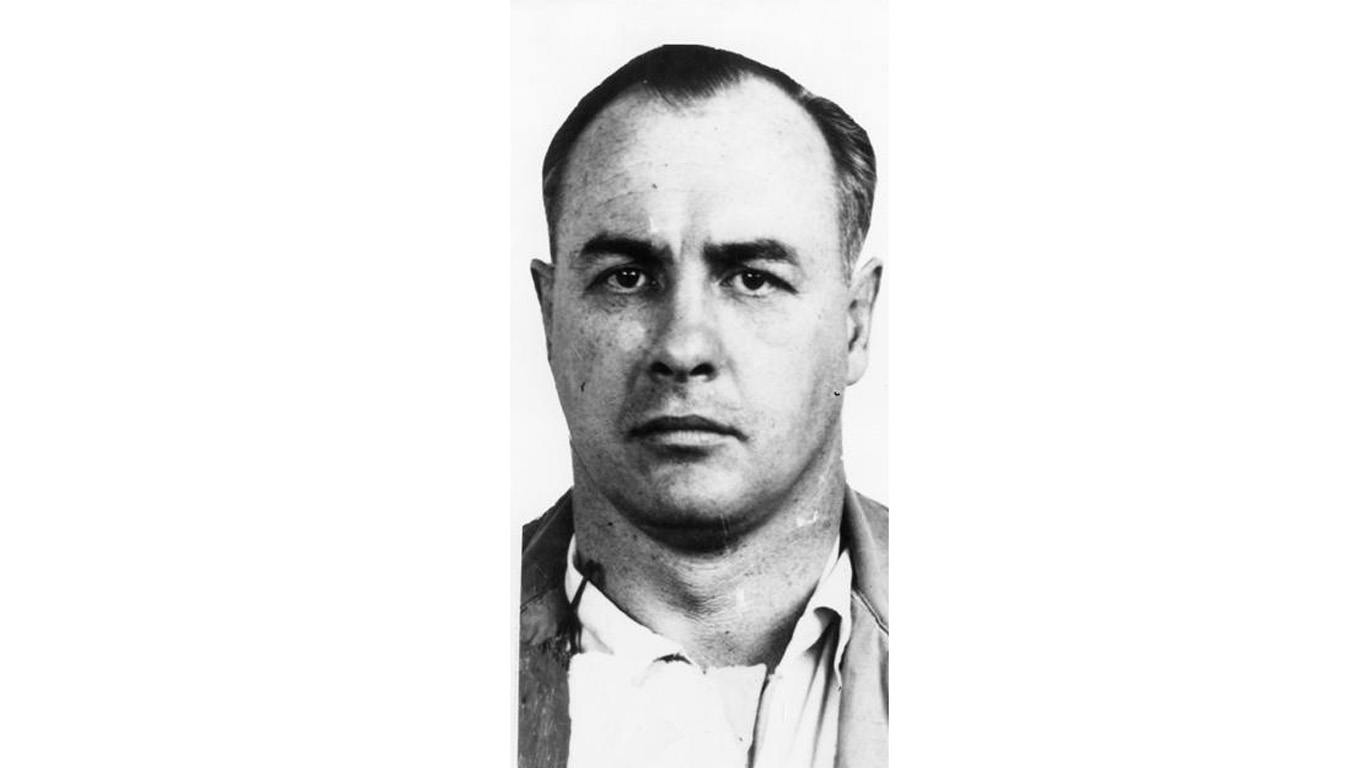
Courtney Townsend Taylor
Courtney Townsend Taylor was a seasoned jewel thief who was spotted by a jeweler in Mobile, Alabama, who recognized his face from a flier, in 1951. The jeweler called the FBI and local police, and he was quickly apprehended. He’d spent one month on the FBI’s list.
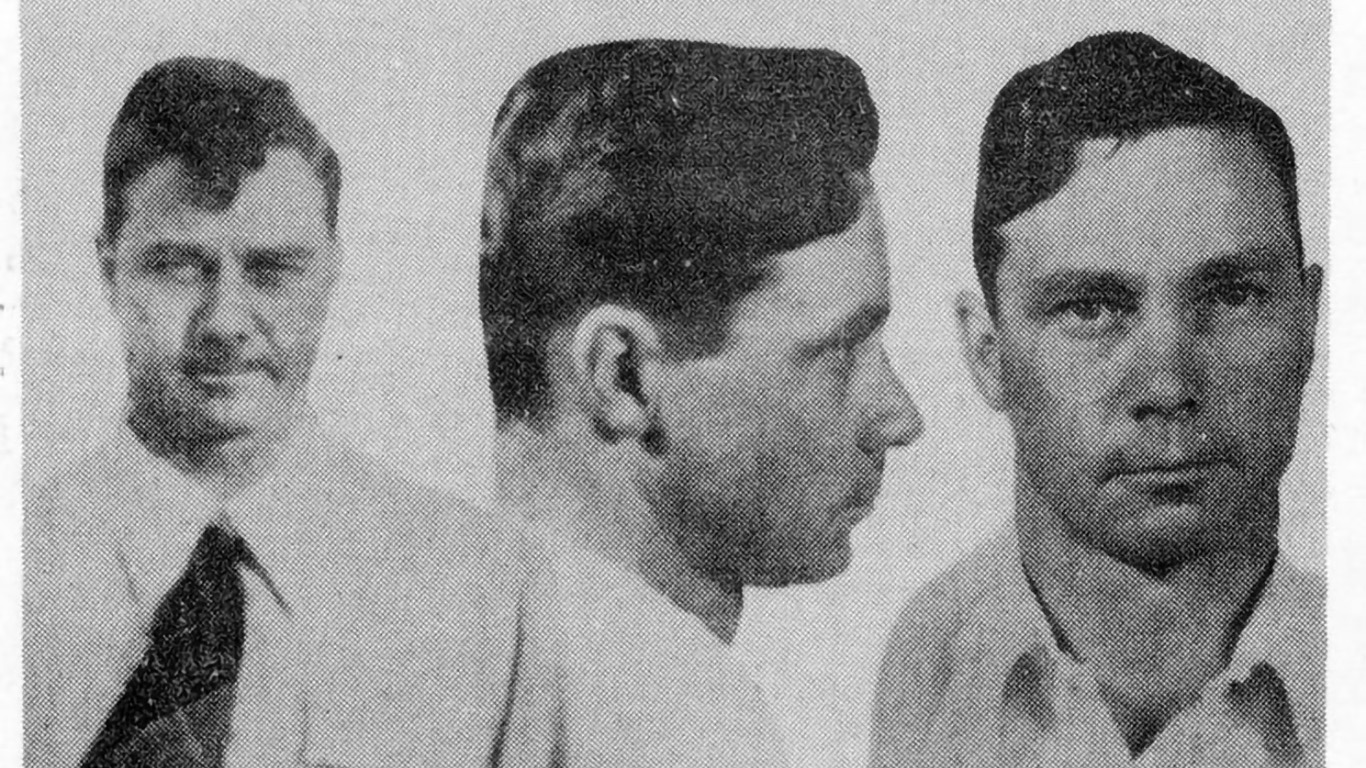
Harry H. Burton
Harry H. Burton spent a year on the Most Wanted List for a 1951 murder (during which he was featured on the popular “True Detective Mysteries” radio show), but following his capture he was acquitted after a witness testified that he was actually at his dying mother’s bedside during the time of the murder.
[in-text-ad]
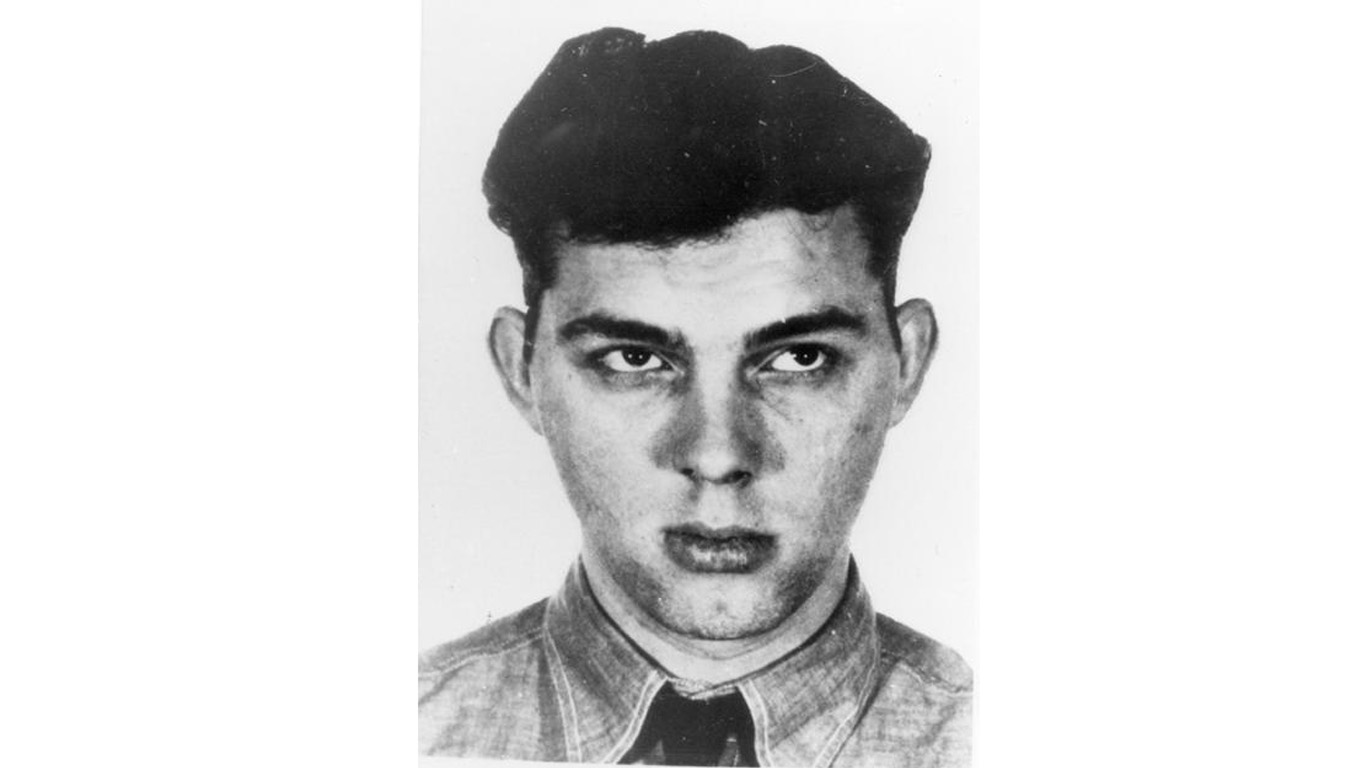
Joseph Franklin Bent, Jr
A veteran robber who’d previously done time at Leavenworth and Alcatraz, Joseph Franklin Bent spent two years on the list after being charged with robbery, attempted murder, and escaping jail in Gretna, Louisiana. After his photo in a magazine was recognized, he was arrested in Texas in 1952.
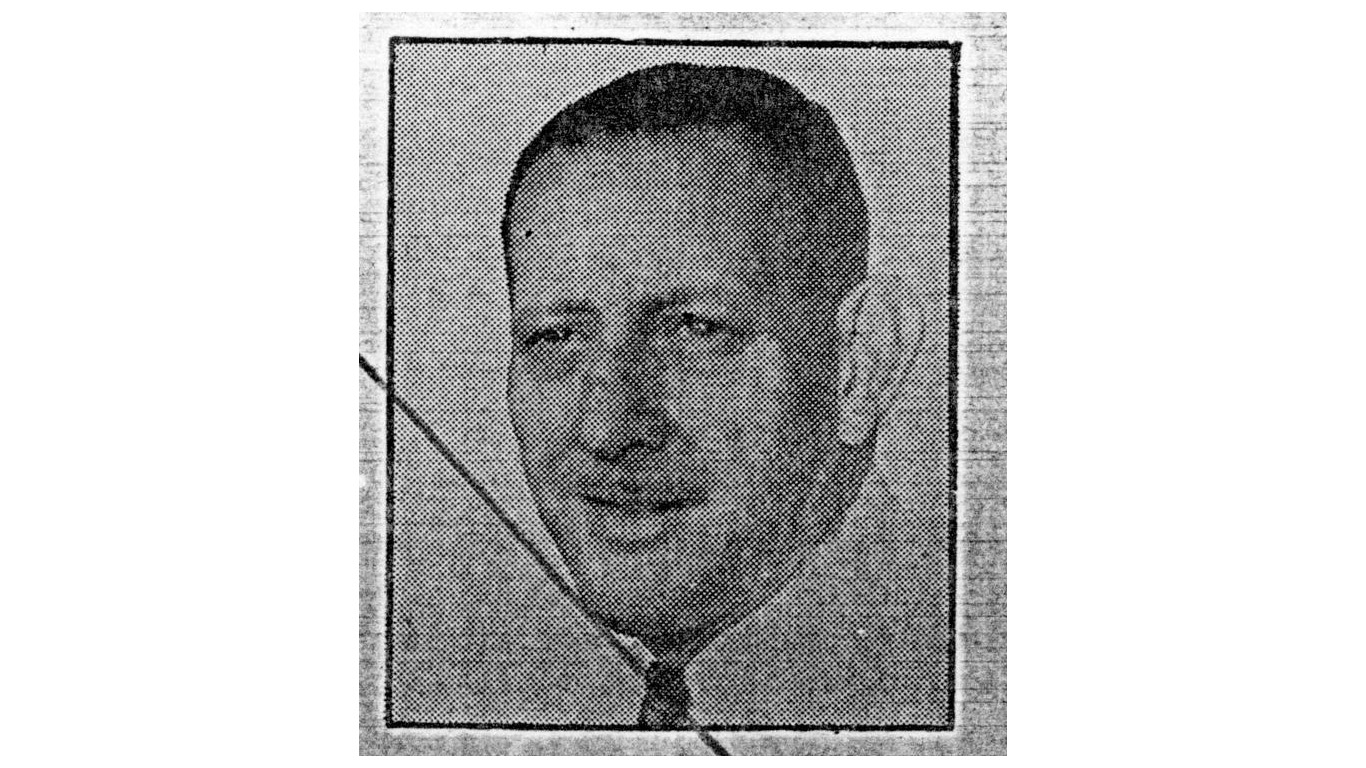
Morley Vernon King
Morley Vernon King was charged with the murder of his wife in a California motel in 1947; after fleeing from the police he evaded capture and spent two years on the list before being captured in 1951 while working as an oyster shucker in a Philadelphia restaurant.
Thomas James Holden
The first fugitive to be included on the 10 Most Wanted List, Holden was described by the FBI as “a menace to every man, woman and child in America.” Along with Francis Keating, he led the infamous Holden-Keating Gang, which robbed banks throughout the ’20s and ’30s. He spent nearly 20 years in prison, and two years after his parole, in 1949, he murdered his wife and two of her brothers after a drunken fight. He spent a year on the list before being captured in Oregon in 1951.
[in-text-ad-2]
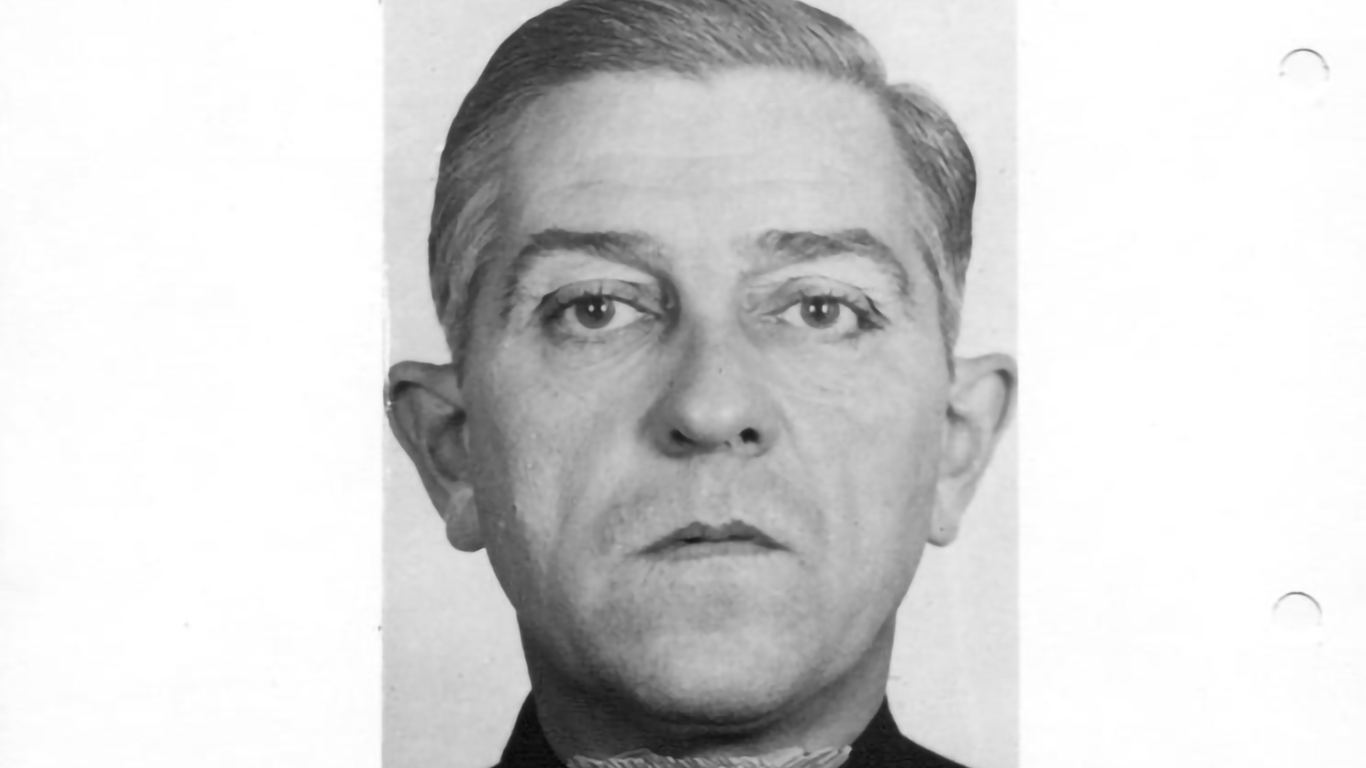
Henry Randolph Mitchell
Mitchell’s criminal career dated back to 1924, and included such crimes as grand larceny, violation of narcotics laws, breaking and entering, and forgery. He robbed a bank in Florida in 1948 shortly after being released from prison, and in 1958 – after eight years on the Most Wanted List – the charges were dismissed because too much time had passed.

Joseph Paul Cato
Joseph Paul Cato never actually made it onto the 10 Most Wanted List, even though his inclusion had already been approved; he surrendered to authorities in Cleveland after seeing his own Identification Order.
[in-text-ad]
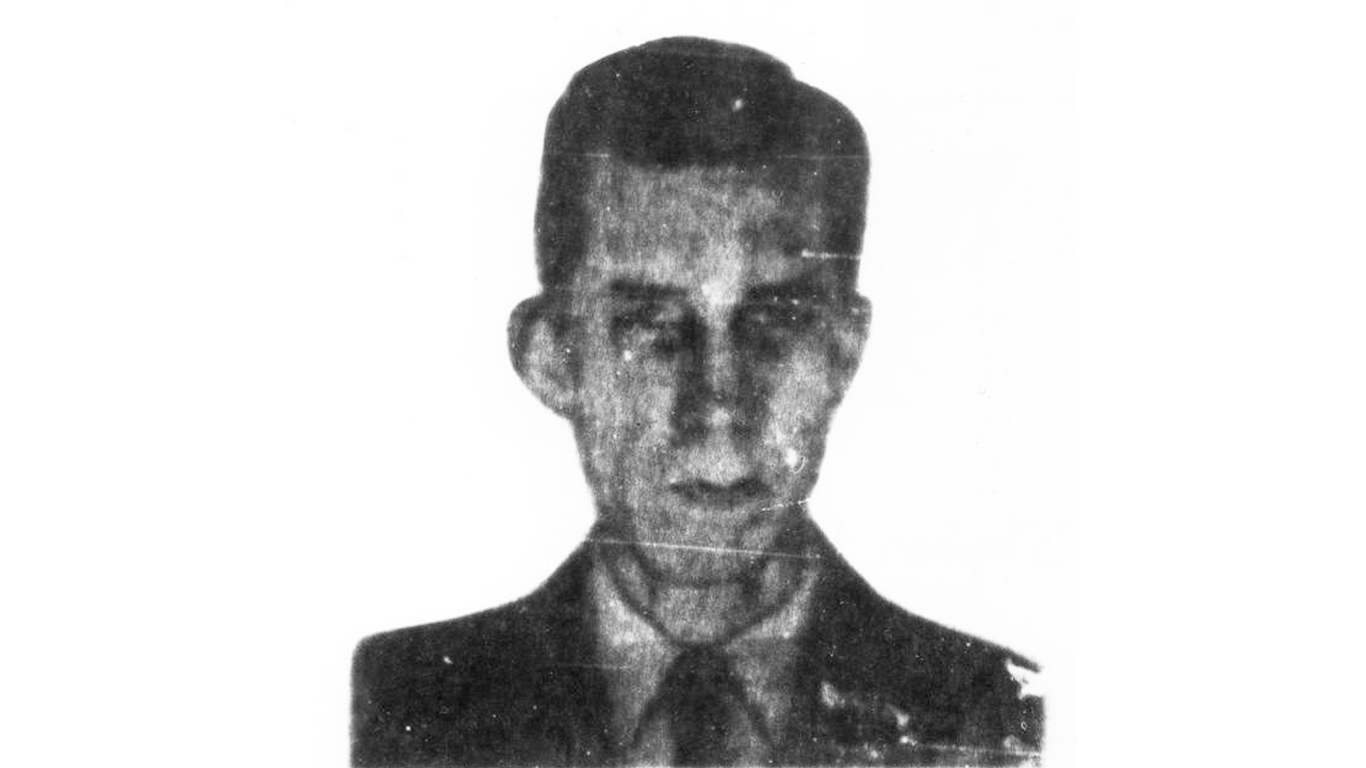
Stephen William Davenport
Not much information is readily available about Davenport, other than the fact that he was a reputed jewel thief and spent one month on the Most Wanted List before being arrested in Las Vegas in 1950.
William Raymond Nesbit
William Nesbit made a career for himself as a jewel thief in the 1930s, and was sentenced to life in prison in 1937. He escaped in 1946, and in 1950 he became the third entry on the FBI’s Ten Most Wanted List. He was arrested in a cave in Minnesota three days later.
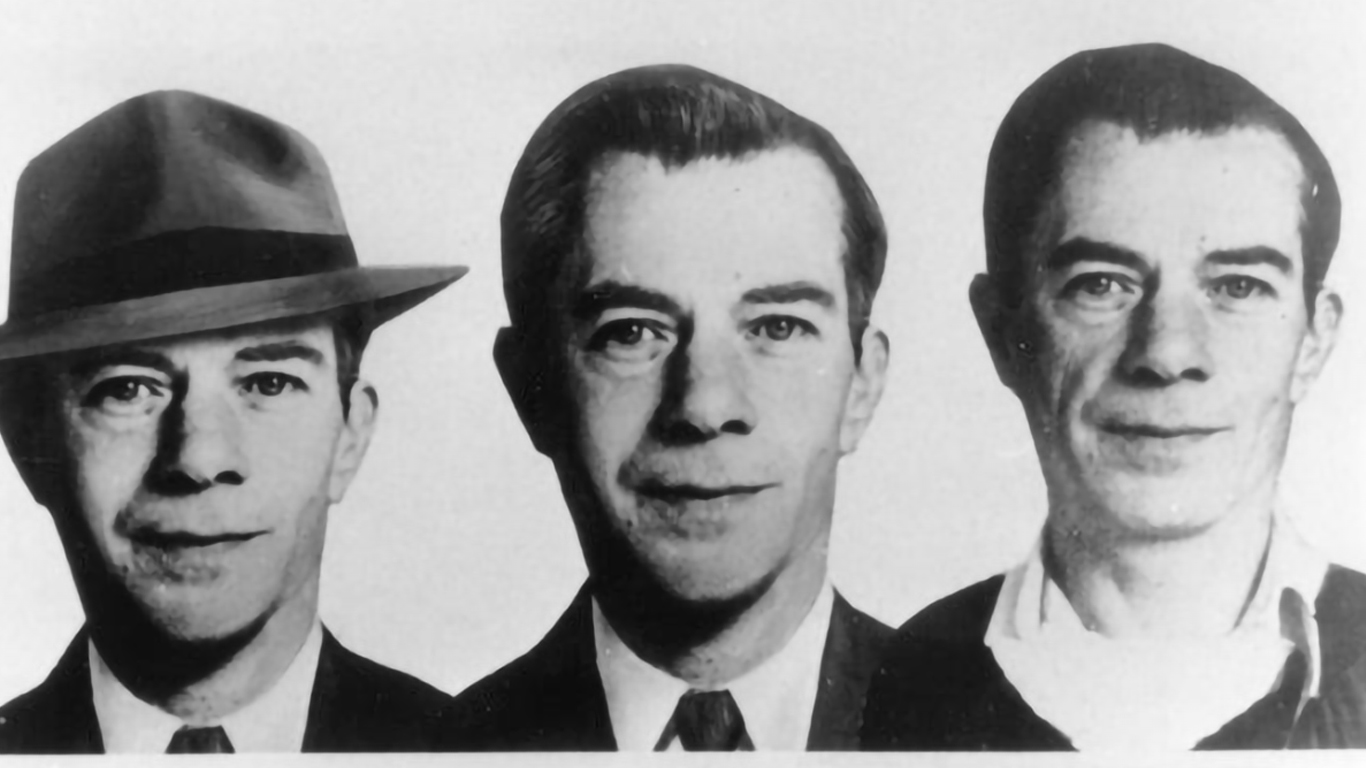
William Francis Sutton
One of the most famous bank robbers of all time, Willie Sutton spent 40 years robbing banks (netting an estimated $2 million in the process) and escaped from prison three times. His final escape, in 1947, resulted in him being added to the FBI’s list just a week after its creation in 1950, and he was captured in 1952. Sutton is perhaps most famous for a (sadly apocryphal) quote: When asked by a reporter why he robbed banks, he replied, “Because that’s where the money is.”
[in-text-ad-2]
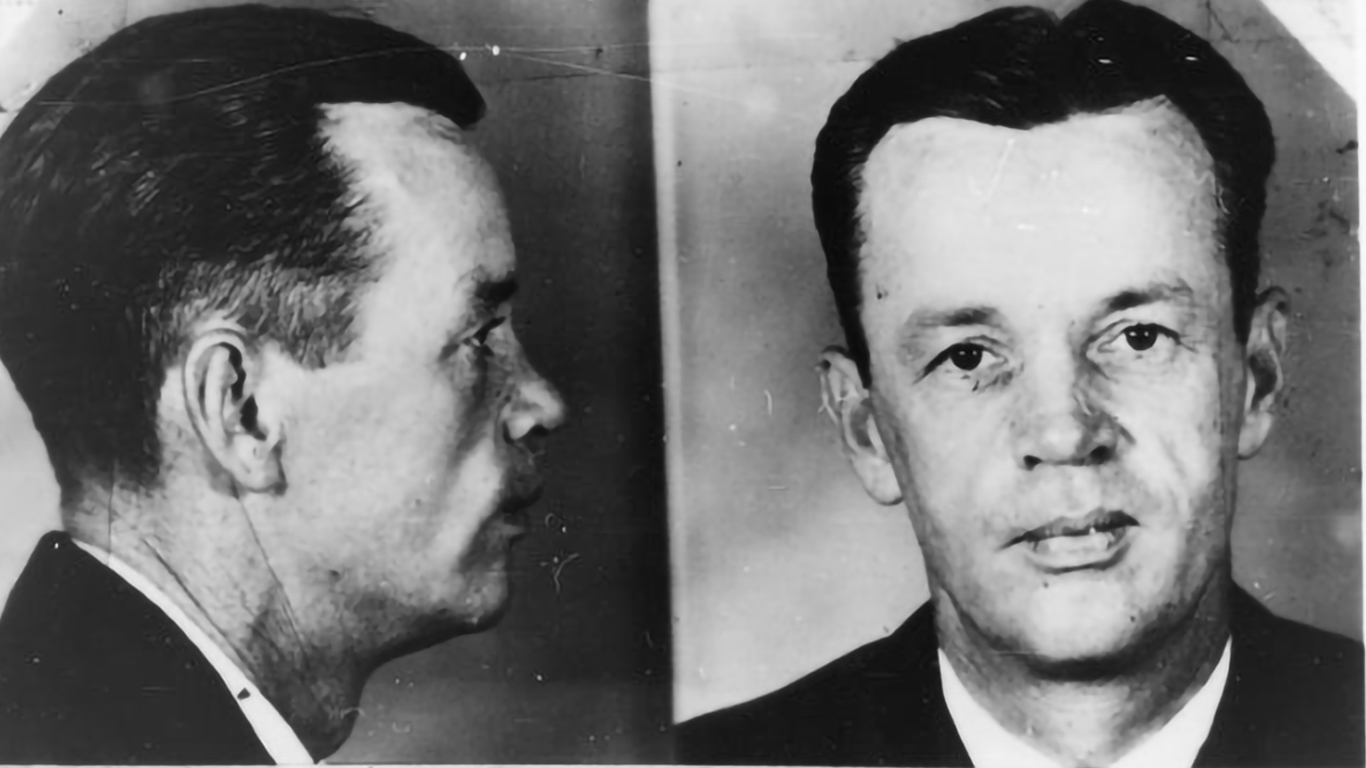
Henry Harland Shelton
Shelton escaped from a Michigan prison in September 1949, and within a couple of weeks he had stolen cars and kidnapped people in four states. He spent three months on the list, and was apprehended after being wounded during a gunfight with special agents.
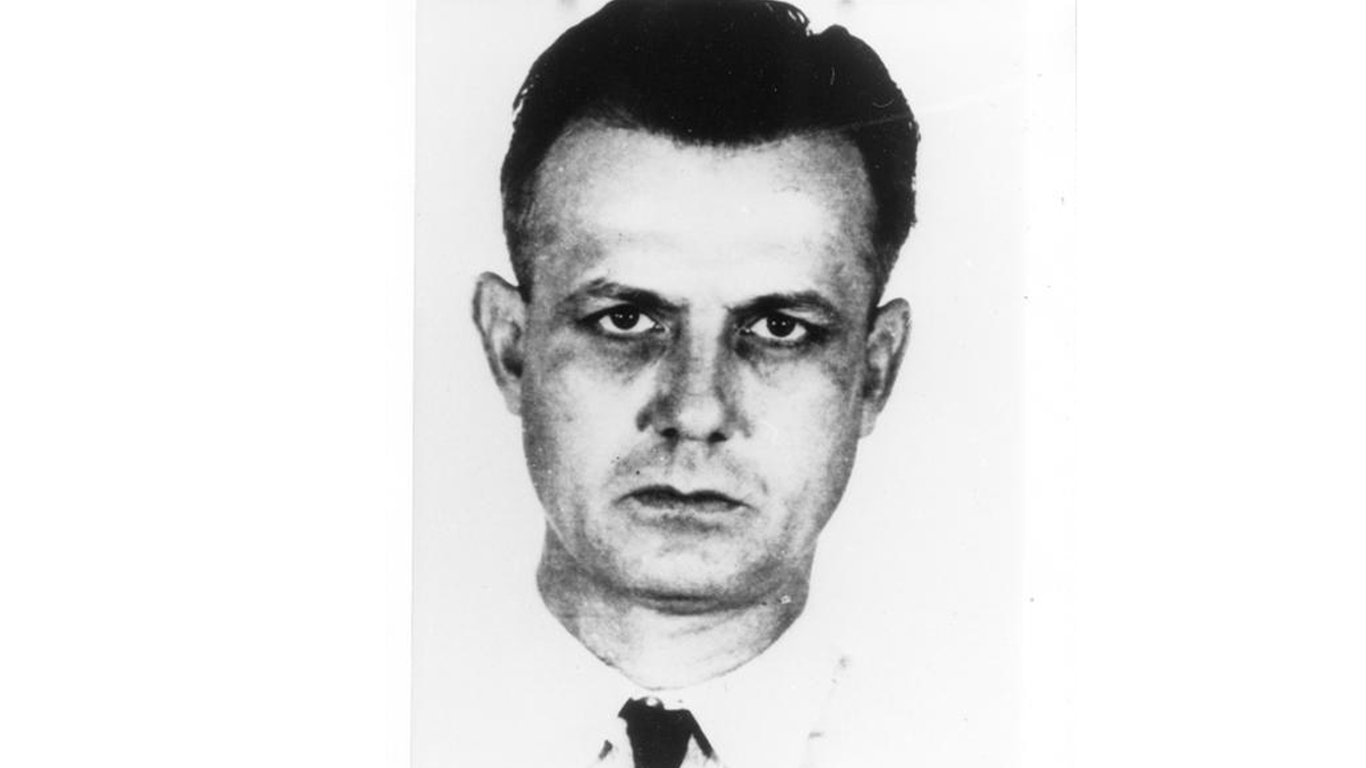
Orba Elmer Jackson
Orba Elmer Jackson spent time in prison for car theft and robbery before escaping from a minimum-security honor farm in 1947. He spent two days on the Most Wanted List before being arrested on a poultry farm in Oregon in 1950.
[in-text-ad]
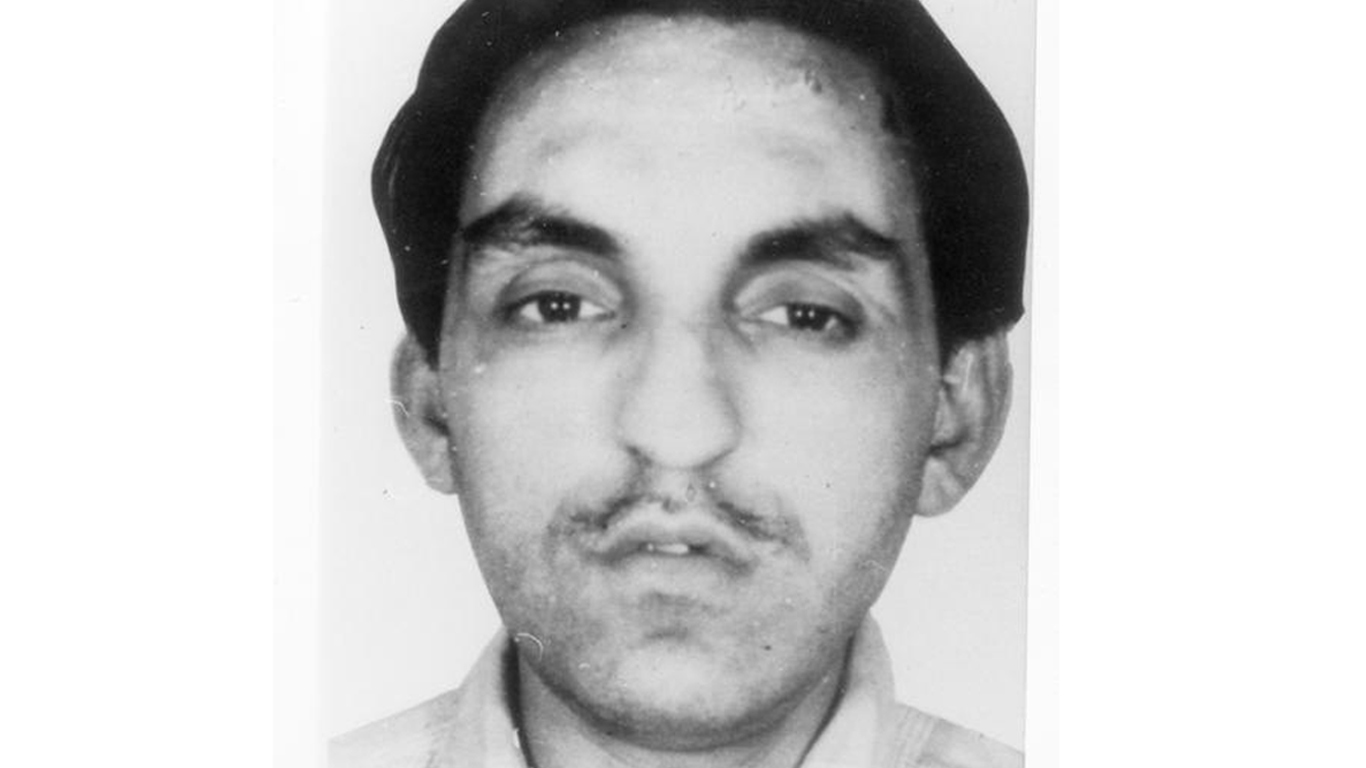
Morris Guralnick
Morris Guralnick was arrested for stabbing his former girlfriend in April 1948 (biting off the finger of an arresting officer in the process), and he escaped from prison three months later. He was captured in a Madison, Wisconsin, clothing store in December 1950, after nine months on the Most Wanted List.
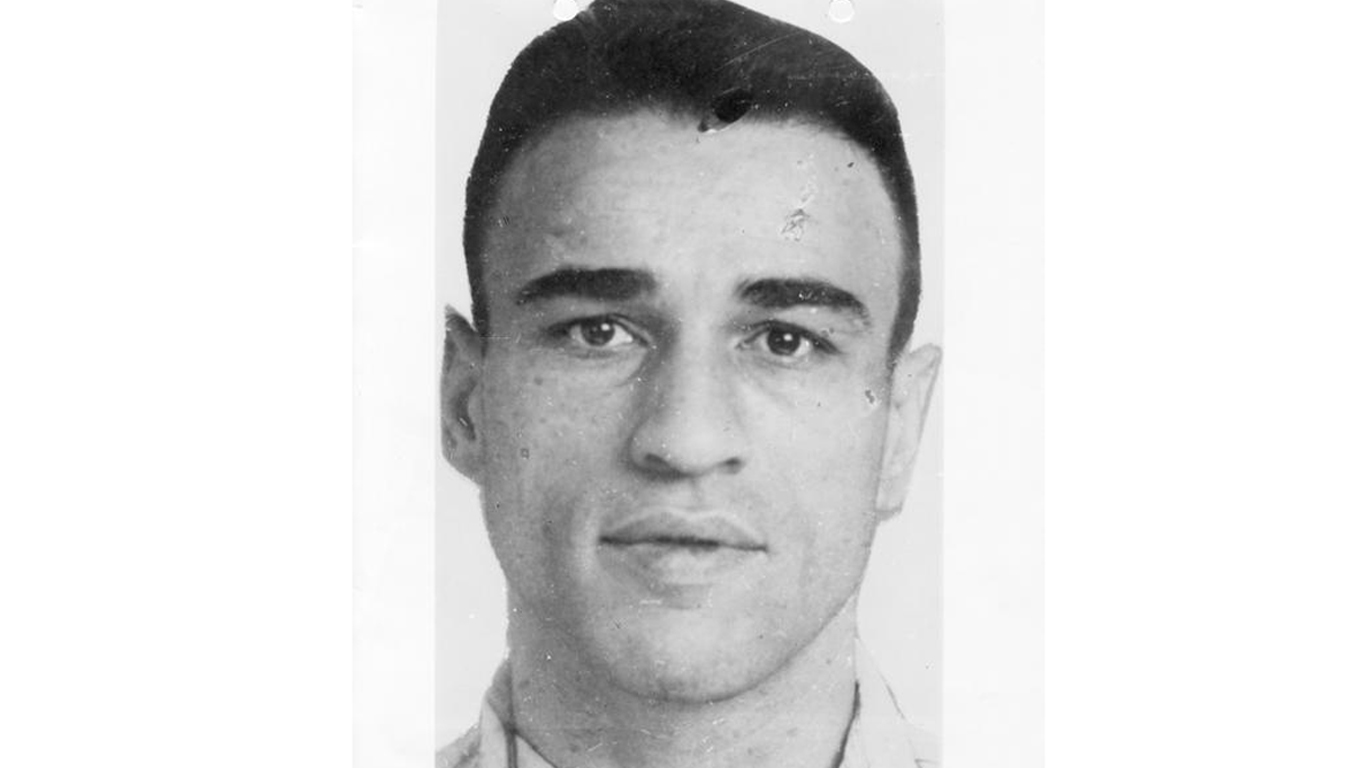
Frederick J. Tenuto
Nicknamed “Angel of Death,” Frederick Tenuto was a low-level New York mobster who escaped from Philadelphia County Prison in 1947 with Willie Sutton and spent 14 years on the FBI’s list. He was never captured, and his name was removed from the list in 1964 following reports that he had been murdered.
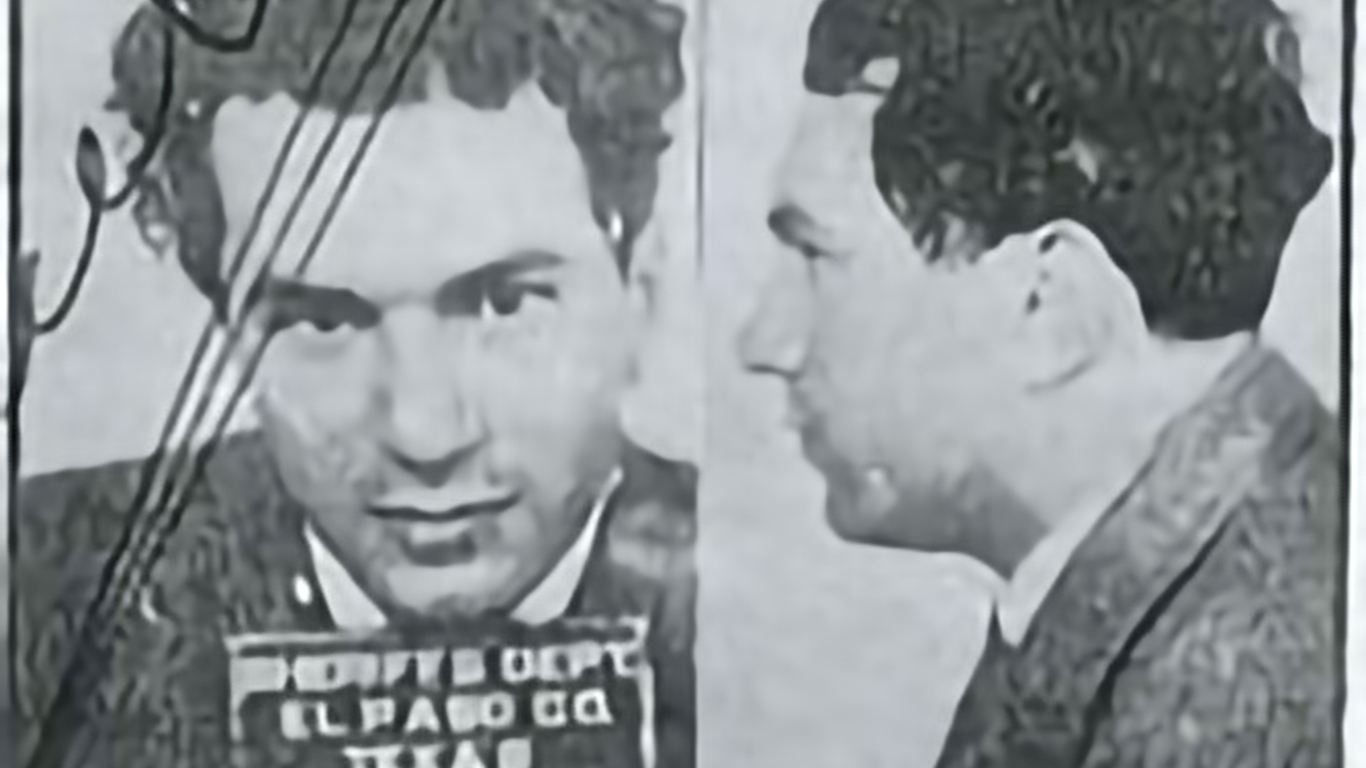
Meyer Dembin
Meyer Demblin was a bank robber who had been on the lam since participating in a $20,000 New York state heist in 1935; he was also suspected in several other jewel thefts and bank robberies. He surrendered in 1951, after one year on the list.
[in-text-ad-2]
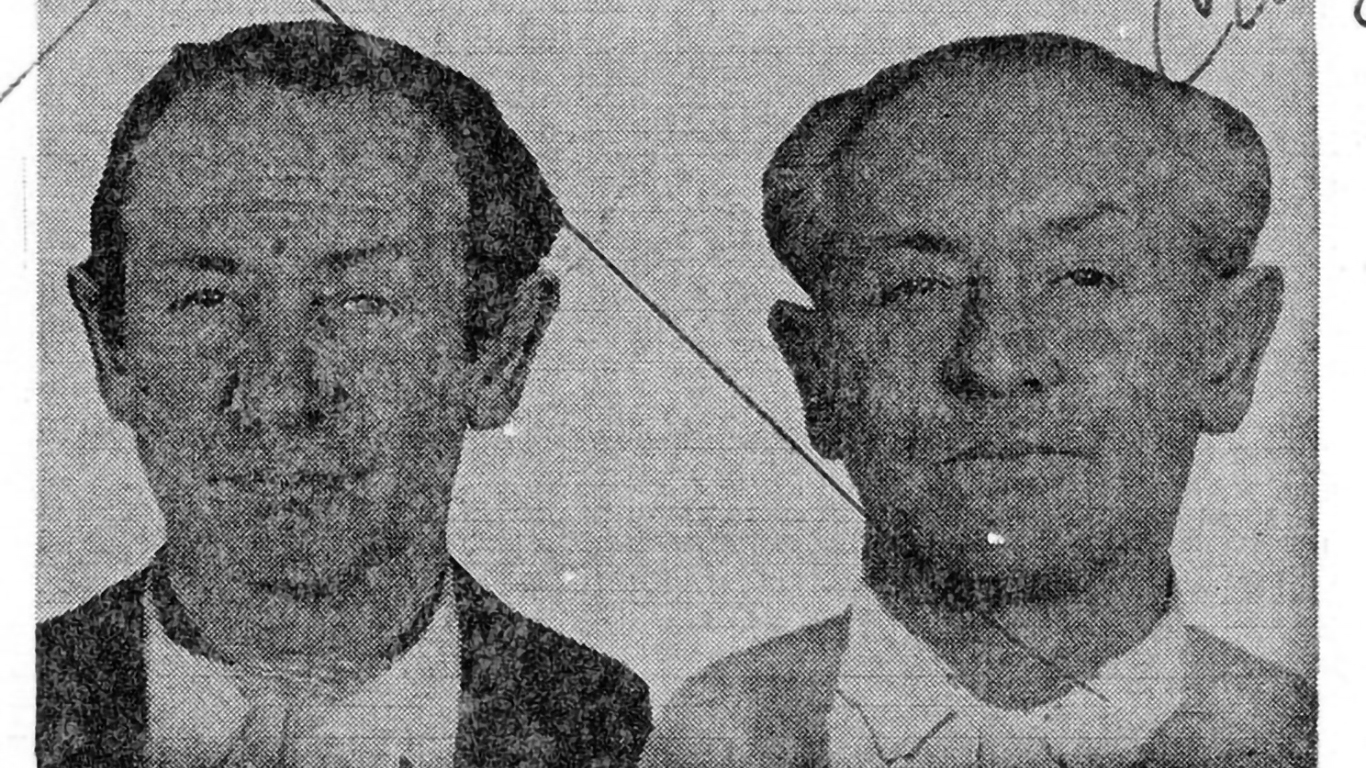
Henry Clay Tollett
In 1948, while serving a 25-year sentence for a $60,000 bank robbery near Portland, Oregon, Henry Clay Tollett escaped from a federal penitentiary in Washington state. He spent one year on the Most Wanted List, and was fatally shot while trying to evade capture in Redding, California, in 1951.
The Average American Is Losing Momentum On Their Savings Every Day (Sponsor)
If you’re like many Americans and keep your money ‘safe’ in a checking or savings account, think again. The average yield on a savings account is a paltry .4%1 today. Checking accounts are even worse.
But there is good news. To win qualified customers, some accounts are paying more than 7x the national average. That’s an incredible way to keep your money safe and earn more at the same time. Our top pick for high yield savings accounts includes other benefits as well. You can earn a $200 bonus and up to 7X the national average with qualifying deposits. Terms apply. Member, FDIC.
Click here to see how much more you could be earning on your savings today. It takes just a few minutes to open an account to make your money work for you.
Thank you for reading! Have some feedback for us?
Contact the 24/7 Wall St. editorial team.
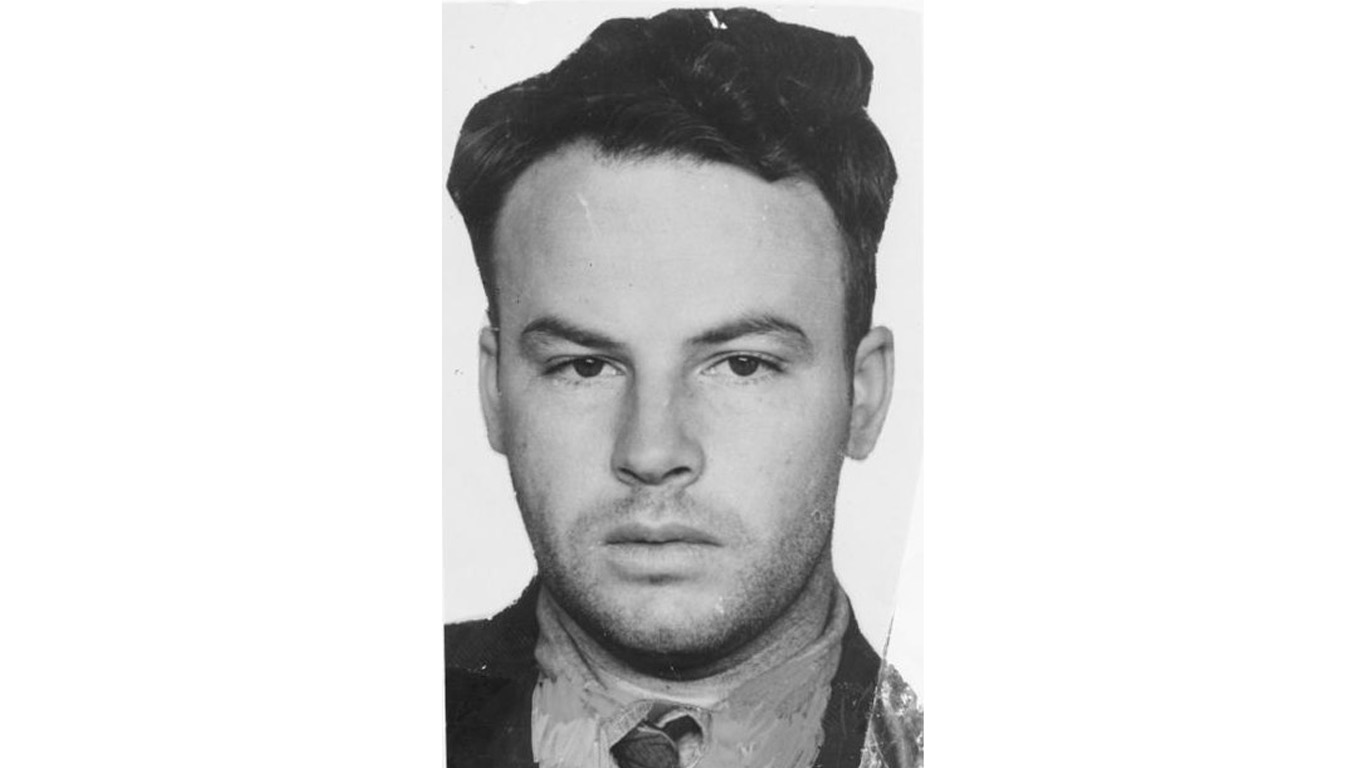
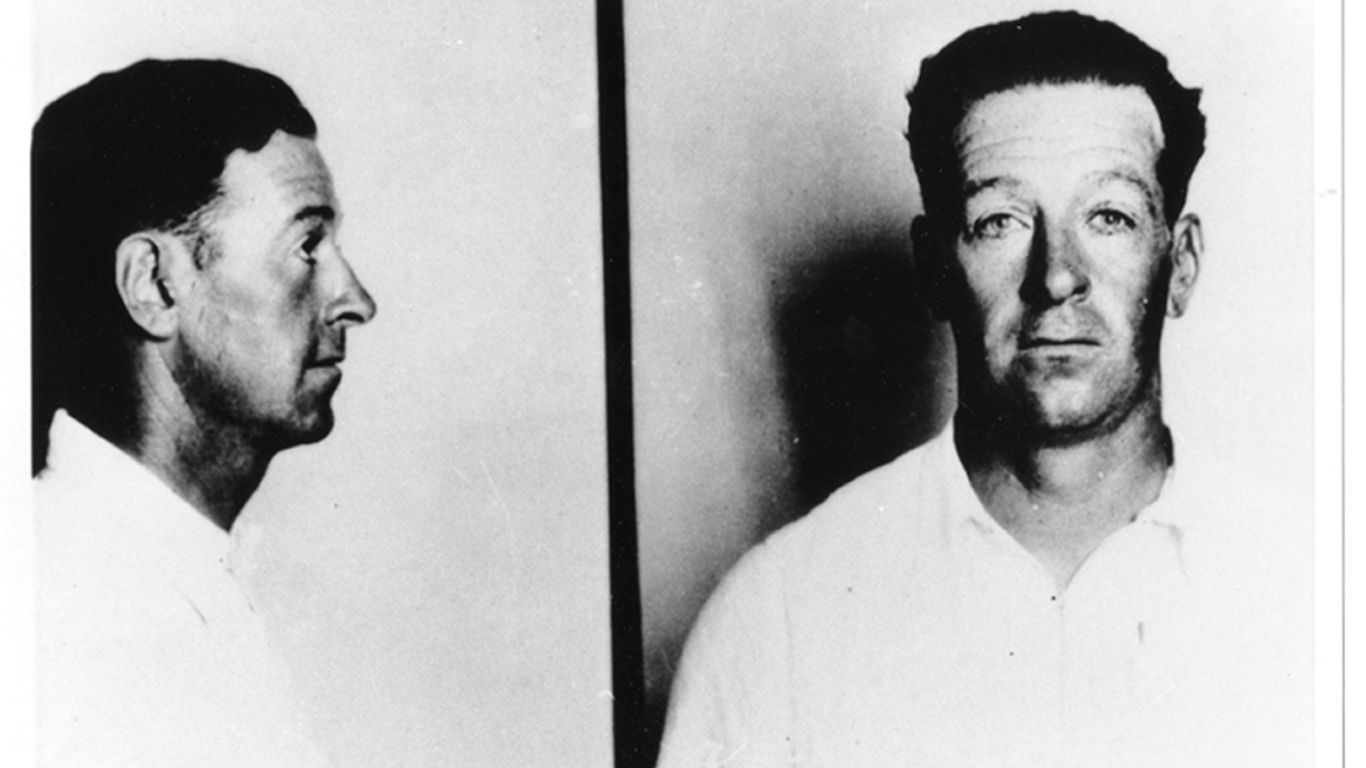
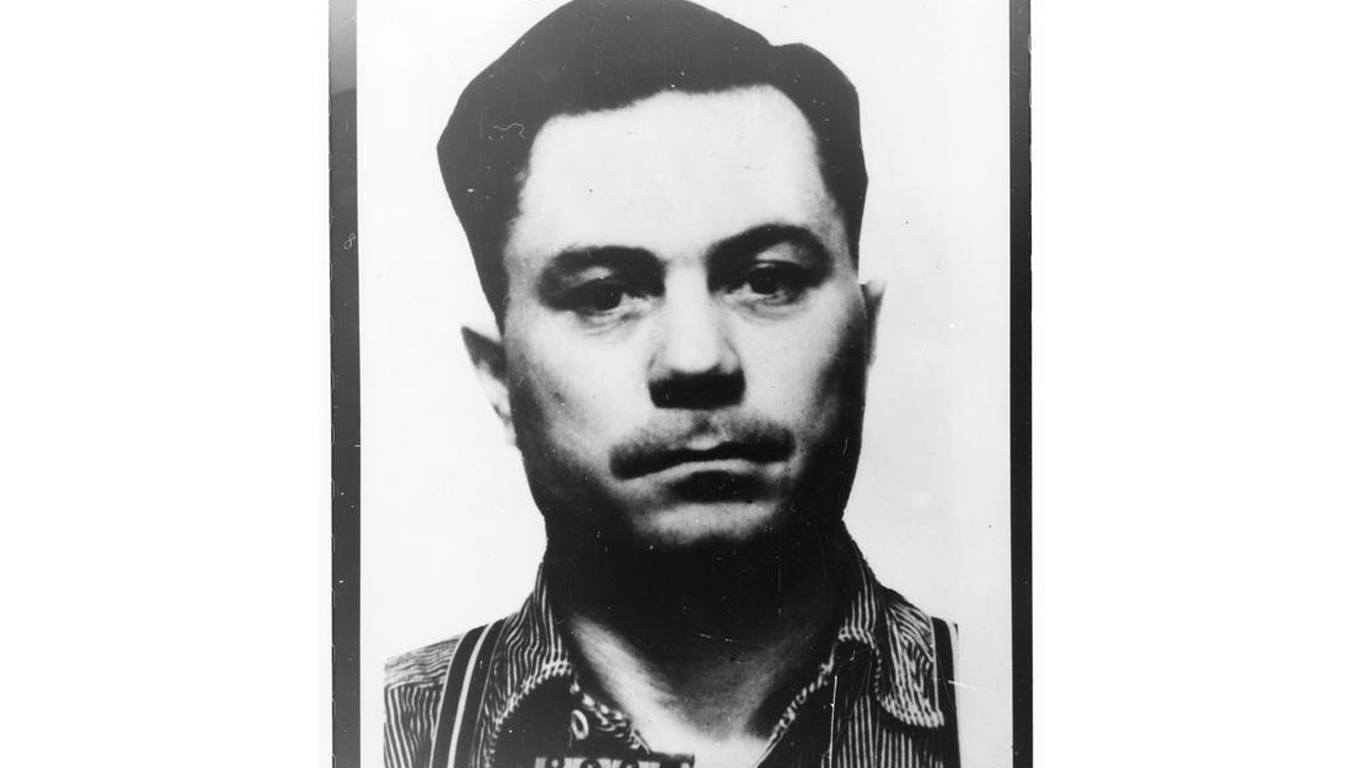
 24/7 Wall St.
24/7 Wall St.